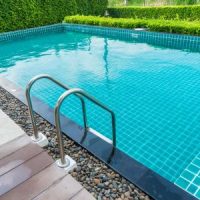Owner Negligence in Swimming Pool Drowning Claims

Many people enjoy swimming and frolicking in Puget Sound or one of the many rivers and lakes in the Seattle area. Others prefer what they believe to be the safety of a swimming pool. But most drowning and other injuries occur in swimming pools. So, we should say that swimming pools are safe, if their owners are committed to safety. Unfortunately, too many swimming pool owners don’t care about safety, or they would rather collect admission fees than address swimming pool injury hazards.
Various state and local laws and rules are in place that protect people from swimming pool injuries. But these rules and laws are nothing but ink on paper unless a Seattle premises liability lawyer enforces them. Furthermore, safety laws don’t compensate injury victims for their economic losses, such as medical bills, and noneconomic losses, such as pain and suffering. Only a personal injury attorney can do that.
Ordinary Negligence
Property owners have a duty to prevent injury to users of the property. They type of duty depends on the relationship between the owner and victim.
- Invitee: Most swimmers are invitees, be they waterpark customers, social guests, or membership affiliates (e.g. homeowners swimming in a homers association pool). The duty of care is high since the relationship is close. These owners must proactively remove injury hazards as soon as they learn about them.
- Licensee: A licensee, like a guest of an apartment tenant, has permission to swim in the pool, but the owner doesn’t benefit in any way. Therefore, the owner only has a duty to warn a licensee about a latent (hidden) defect, such as a nonworking drain.
- Trespasser: Normally, trespassers are entitled to no protection under Washington law. However, the attractive nuisance rule protects child trespassers injured at attractive nuisances like swimming pools and construction sites.
We mentioned the knowledge requirement above. A Seattle personal injury attorney can use direct or circumstantial evidence to prove knowledge.
Pool safety reports and prior injury incidents are direct evidence of actual knowledge. The time-notice rule controls circumstantial evidence determinations. If a pool’s chemical cleaner level is too high, at some point, the owners should have known about the problem and should have done something about it.
As mentioned above, drowning isn’t the only swimming pool injury hazard. If a swimming pool drain is too strong, it creates a riptide that pulls swimmers under the water. If the chlorine or other chemical cleaner level is too high, the high level causes chemical burns.
Negligence Per Se
Sometimes, a state or local law or rule establishes the standard of care. Examples include pool safety measures such as:
- Unclimbable barriers that surround the pool,
- Water alarms,
- Self-latching gates that operate from the pool side, and
- Lifesaving equipment within reach.
If an owner violates such a measure and that violation causes injury, the owner could be liable for damages as a matter of law.
Comparative fault, in one form or another, is the most common defense in ordinary negligence and negligence per se claims. Typically, the defendant argues the victim wasn’t being careful or ignored a “No Lifeguard On Duty” or other warning sign.
If jurors determine that both sides were partially at fault, they must divide responsibility on a percentage basis, such as 60-40. Then, the judge may reduce the victim’s compensation accordingly.
Speak With a Dedicated King County Lawyer
Property owners have safety responsibilities. For a free consultation with an experienced personal injury lawyer in Seattle, contact the Emerald Law Group. We do not charge upfront legal fees in these matters.
